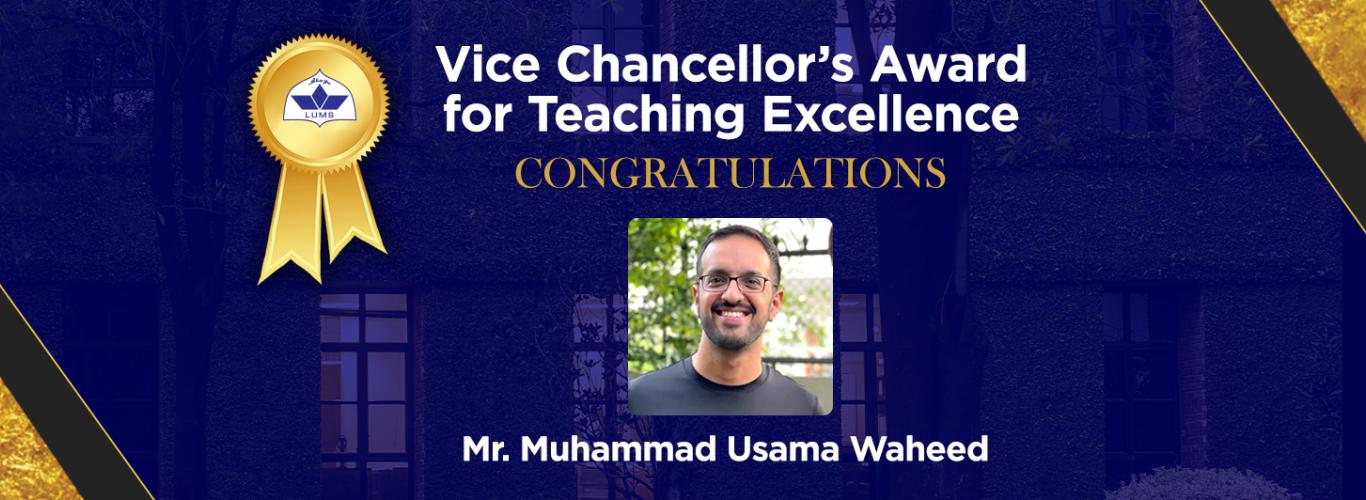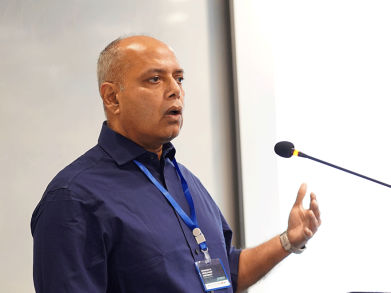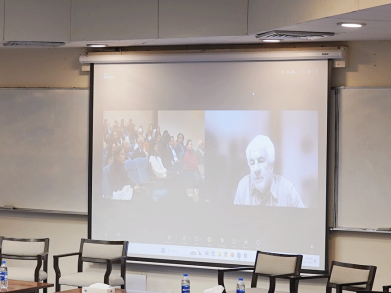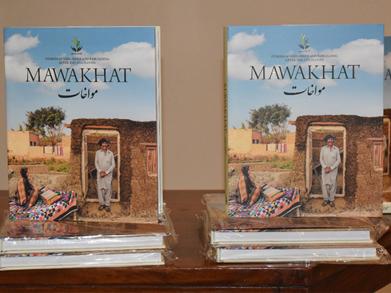In Conversation with Mr. Muhammad Usama Waheed, Recipient of VC’s Award for Teaching Excellence 2022-23
Mr. Muhammad Usama Waheed is an outstanding teacher of Psychology and Behavioural Economics who focuses on ‘treating students with respect and empathy and encouraging them to introspect and grow’. His practice of putting students first by offering personalised support and feedback on their learning is often highlighted. As one student put it, “His ability to check up on people individually and have casual chats makes him stand out...individual feedback, criticism, and praise is a key part of teaching that is often overlooked. So, thank you for that.”
He takes a pedagogical approach that is grounded in experiential and reflection-based learning, leading by example, and innovating to help students integrate theory with real-world contexts. He uses a variety of technology tools and is involved in co-working with students on their projects, using participatory design for his courses, and creating innovative case studies from personal experiences. Mr. Waheed’s unwavering dedication to student engagement and learning is making a sizable difference in their lives, and that is why he is one of LUMS' most celebrated teachers.
We sat down with Mr. Waheed to learn more about his teaching philosophy, how his students inspire him and what he thinks about the awards.
What inspired you to be a teacher?
I was lucky to have great teachers myself. They weren’t even teachers – they were more like friends and mentors. While there are plenty of fantastic teachers inside the classroom, it’s when I saw what impact could be created outside of it that I decided to pursue teaching. To me, teaching is just a way to get to know about a hundred new people every year, who I can then help long after the course has ended – because that’s the experience I got from the very best teachers I had.
What do you find most rewarding as a teacher?
Since a lot of my teaching is experiential/application-based, I love it when students write to me over the years just to tell me how they still remember and use what I taught them. My teaching philosophy aims to create long-term value, particularly in terms of behaviour change, so it is satisfying to hear from students that it has, indeed, made an impact on their lives beyond just quizzes and exams.
What do you think is required to improve the overall teaching experience in Pakistan?
I hesitate to make generalisations about the education system in the entire country but something I feel strongly about is reducing the power gap between students and teachers. The more teachers teach, the more they forget what it feels like to learn; or indeed, what it’s like to be a student. A great learning environment starts by making the classroom a place that students want to enter, and I certainly would not want to enter a room in which I am belittled. So, teachers should treat their students as they would treat any other human – with respect and empathy.
What is the singular achievement as a teacher that you are proud of?
Getting LUMS students to not care about grades! I have received several emails where students express their gratitude for the learning from my course and the amount of qualitative feedback I provide them on how to improve, rather than reducing them to a number that can be entered in Zambeel. To get them to not worry about their grades in a competitive environment like LUMS is quite an achievement for me.
What does the Vice Chancellor’s Award for Teaching Excellence mean to you?
As a relatively new instructor, I owe this award to my students who have been extremely patient and supportive while I learn and grow as a teacher. The award encourages me to continue innovating my teaching methods and pushing the boundaries of what can be achieved inside and outside the classroom. It also serves as a reminder to me that age and experience are no excuses for me to not strive for excellence.
If there is one thing that you want your students to remember about you, what would that be?
I would like them to remember me not as a good teacher, but as a good person. Often, the two will go hand-in-hand, but sometimes I have to make decisions that prioritise the latter over the former. To that end, I’d like students to remember that being a decent human being will take them a lot further in life than being an excellent professional.
What inspired you to teach Psychology and Behavioural Economics?
Both are fields that focus on human behaviour. My teaching philosophy encourages behavioural change for the better, so it is important to first understand how people behave before one can introspect on their own individuality and attempt to improve. While technical knowledge in these fields is great, I feel that the hallmark of a good education is that you also become a better human.























